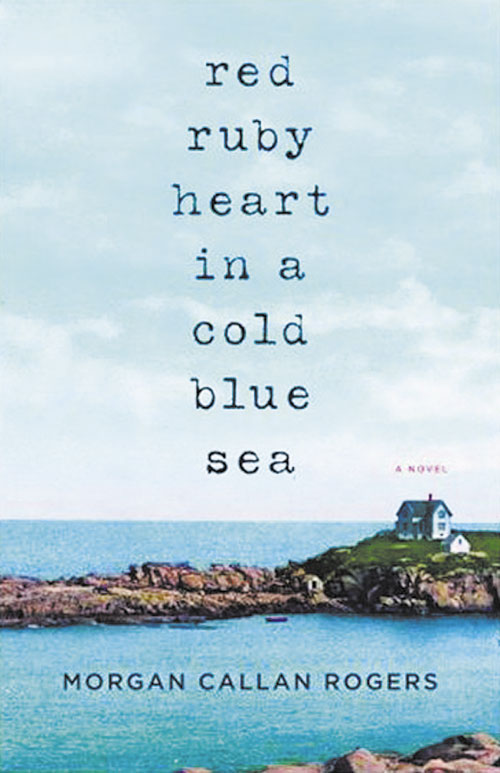RED RUBY HEART IN A COLD BLUE SEA
By Morgan Callan Rogers
Plume, 2013
308 pages, $16
ISBN 978-0-452-29863-7
In 1961, famed British author C.S. Lewis wrote: “No one ever told me that grief felt so like fear.” He might have written that sentence just for 12-year-old Florine Gilham, whose mother mysteriously disappears, leaving the young girl with nothing but overwhelming grief and fear.
“Red Ruby Heart in a Cold Blue Sea” is Maine author Morgan Callan Rogers’ debut novel about a girl whose life is suddenly full of anger, fear and uncertainty, at a time when a girl needs her mother most. This stunning, evocative novel was selected as a finalist for the 2013 Maine Literary Award for fiction — and deservedly so.
The promotional hype calls this a coming-of-age story, but it’s really a coming-to-life tale, as Florine must deal with great loss, anger, sadness and lonely despair in her constantly changing world that adults just don’t understand.
Beginning in 1963 and set in a fictional coastal Maine fishing village, the story reveals much about small-town life where everyone knows everyone and most folks are friends. After her mother’s strange disappearance, Florine becomes sassy and bitter, and her passing teenage years are a test of everyone’s patience as she argues with her father, adores her grandmother and pines for a boy she can’t have.
By the time she is 18, Florine has experienced more heartache than anyone should ever know, making mistakes and causing pain for those who love her. But she is stronger than she realizes, and there is hope for resolution and happiness.
This is a warm, passionate story filled with authentic human emotions and interactions, creating a poignant, often sad, sometimes funny portrayal of 1960s Maine that will leave the reader satisfied. And anyone who has known real grief will surely understand this story.
THE LAST OF THE DOUGHBOYS: THE FORGOTTEN
GENERATION AND THEIR FORGOTTEN WORLD WAR
By Richard Rubin
Houghton Mifflin, 2013
528 pages, $28
ISBN 978-0-547-55443-3
“Few big things are as overlooked and underappreciated, in the modern American landscape, as the First World War,” claims author Richard Rubin, and “The Last of the Doughboys” sets out to correct that deficiency.
Rubin lives in Bath, and is also the author of “Confederacy of Silence” (Atria, 2003). He spent 10 years tracking down, meeting and interviewing the last surviving American veterans of the Great War, preserving as oral histories the wartime memories of more than two dozen soldiers, sailors and marines. The result is a stunning and inspiring tribute to the contributions of all those men and women now gone and mostly forgotten.
Rubin’s unselfish efforts to capture these World War I memories reveals much about the Great War generation as he carefully listened to their remarkably lucid and refreshingly unadorned stories of the horrors of trench warfare, night raids, enduring artillery and gas attacks, graphic and sobering views of the dead, wounded and prisoners, as well as the funny, often poignant memories of friends and off-duty antics in France, 1917-18.
Few of these centenarians refused to talk of their wartime experiences — most were eager to share their stories — and Rubin was surprised at their clarity and honesty, especially regarding subjects that many people today would find too gruesome or embarrassing to discuss. One soldier vividly tells of participating in a firing squad, another tells of battlefield souvenir hunting — although he admits it was sometimes hard to get a German to give up a coveted souvenir, at least while he was still alive.
Rubin also includes interesting sections on spies, sedition, field sanitation, patriotic music and books and racial segregation, along with the centenarians’ hilarious secrets for longevity and their surprising feelings about army food.
— Bill Bushnell lives and writes in Harpswell.
Send questions/comments to the editors.



